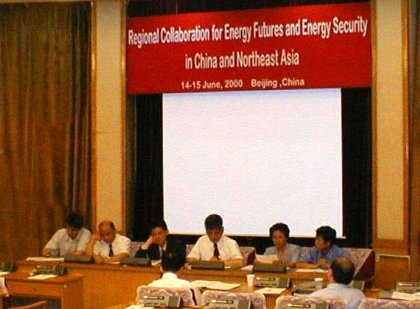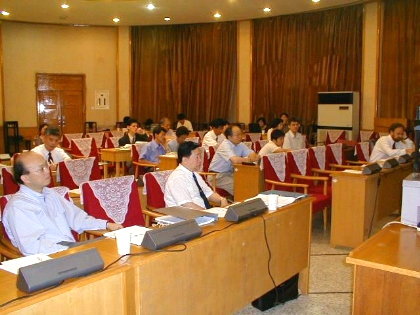

Tsinghua University, Beijing, China, June 14-15, 2000
Participants presented analyses of regional energy futures, and held preliminary discussions about improving regional energy security through collaborative research and possible implementation of cooperative activities for regional energy futures.
Click the links below to view information on the composition, organization, and results of the conference (active links represent information currently available):
On June 14-15, the Nautilus
Institute and the US/China Energy and Environmental Technology Center at Tsinghua University
jointly convened the first collaborative workshop,
“Regional Collaboration for Energy Futures and Energy Security in China and Northeast Asia.”

![]() The purpose of the workshop was to discuss energy furtures and energy security in China and Northeast Asia with energy researchers from China, Republic of Korea, Democratic People's Republic of Korea, Far East Russia, and Japan.
The purpose of the workshop was to discuss energy furtures and energy security in China and Northeast Asia with energy researchers from China, Republic of Korea, Democratic People's Republic of Korea, Far East Russia, and Japan.

![]() The workshop was part of the East Asia Energy Futures (EAEF) project, which is designed to encourage the collaborative elaboration and evaluation of national and regional energy futures for Northeast Asia. Northeast Asia
The workshop was part of the East Asia Energy Futures (EAEF) project, which is designed to encourage the collaborative elaboration and evaluation of national and regional energy futures for Northeast Asia. Northeast Asia
This work is supported by grants from the
W. Alton Jones Foundation and the U.S. Department of Energy.